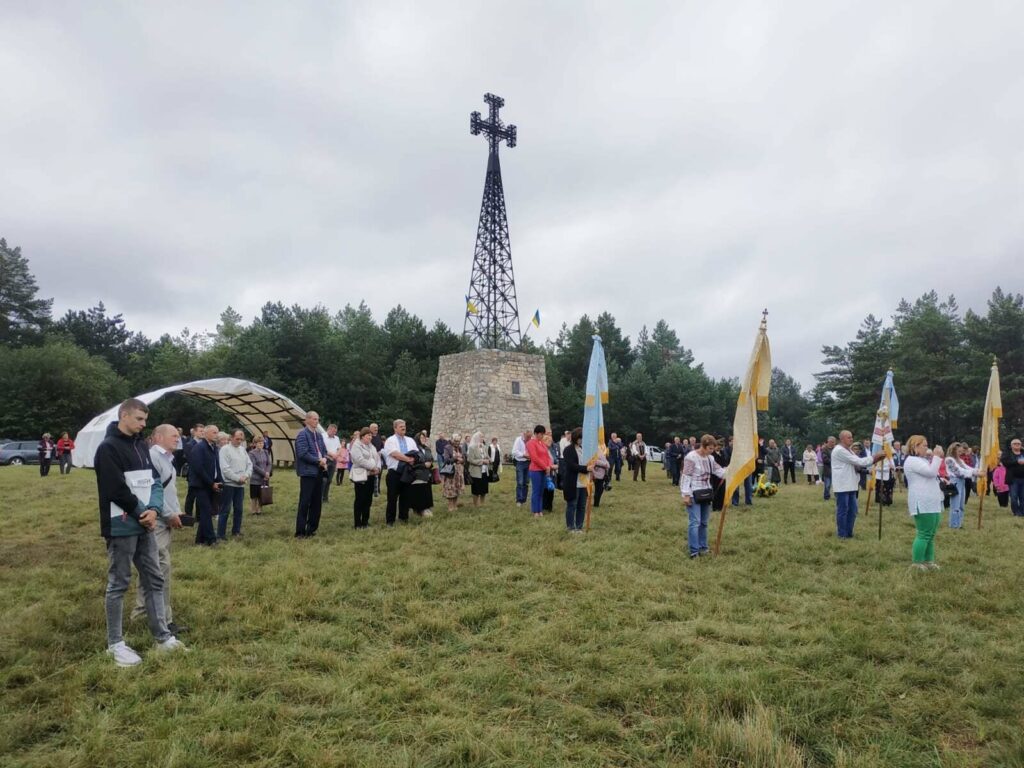The public of the district, the clergy, representatives of the authorities, young people came to pay their respects to the glorious compatriot, spiritual educator, writer, poet and thinker
Traditionally, on the first Sunday of August, near the Memorial Cross on White Mountain near the village of Pidlyssya, Zolochiv District, the spiritual and artistic festival “Light of Markian” took place.
The event began with the Bishop’s Divine Liturgy, presided over by Bishop Volodymyr Grutsa.
Afterwards – a memorial service and laying of flowers at the grave of Sich Riflemen of the Ukrainian Galician Army.
The event ended with performances by artistic groups of the Zolochiv region, who performed patriotic songs and artistic numbers.
For reference
Father Markiyan Shashkevich was born in the village of Pidlyssia (now Zolochiv district, Lviv region) in the family of a Greek Catholic priest. He studied at the primary school in Bila Kamen, the city normal school (graduated in 1823) and the Dominican gymnasium (1823-1825) in Lviv, the Berezhansk gymnasium, and was a free student of the Lviv University.
In 1836, he gave his first speech in Ukrainian in the museum of the seminary in front of representatives of the spiritual authorities and invited guests.
On October 14 of that year, he delivered his sermon in St. George’s Cathedral (simultaneously with Yuliyan Velychkovsky in the Dormition Church, Mykola Ustiyanovich – in the Church of St. Paraskeva).
In 1838, he graduated from the Lviv Theological Seminary. He was appointed a parish priest in the villages of the Lviv region: first — in Humnysk, then — in Nestanychy of the Kholoiv deanery and Novosilky.
During his studies at the seminary, Shashkevich together with Yakov Holovatskyi and Ivan Vahylevych rallied nationally conscious youth (I. Bilinskyi, F. Minchakevych, M. Kozlovskyi, A. Velychkovskyi, G. Ilkevych, etc.), who took up the struggle for national and cultural revival in western Ukrainian lands, in particular for the revival of the Ukrainian language in writing and church sermons. The result of their activity was the preparation of manuscripts, collections, author’s poems of students of theological seminary “Son of Rusa” (1833) and “Zorya” (1834), which did not see the light of day due to censorship, and most importantly – the almanac “Rusalka Dniestrova” (1837) published in Budapest. , which had a decisive influence on the national revival and development of Ukrainian literature in Galicia.
According to Kyril Studinsky, Markiyan Shashkevich was “the first Ruthenian in Galicia who was imbued with the idea of nationality.”

